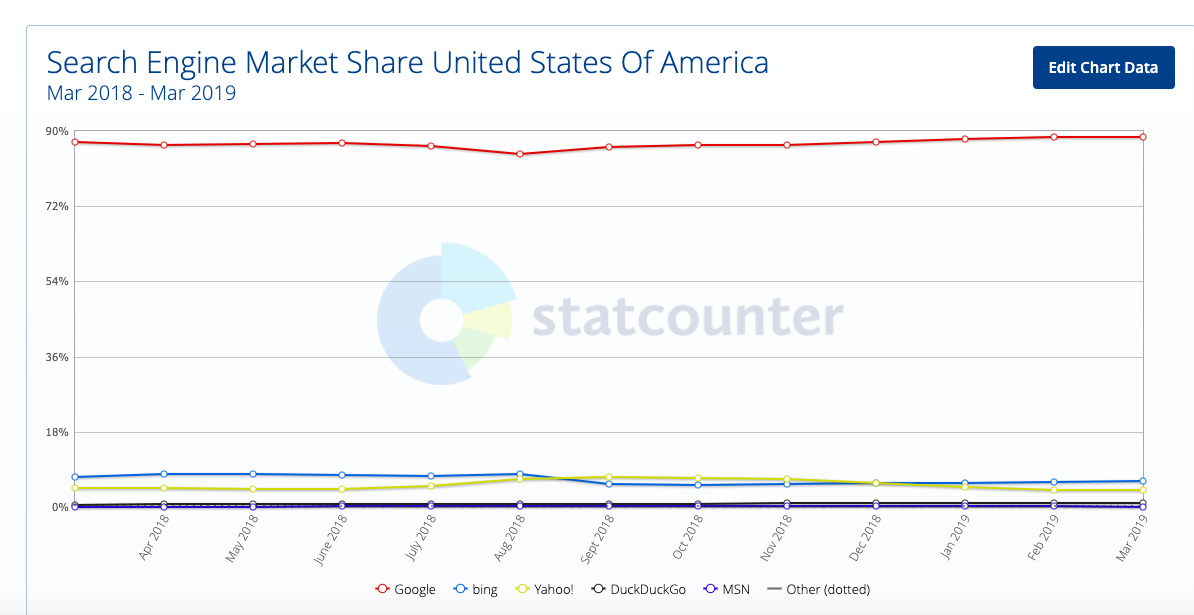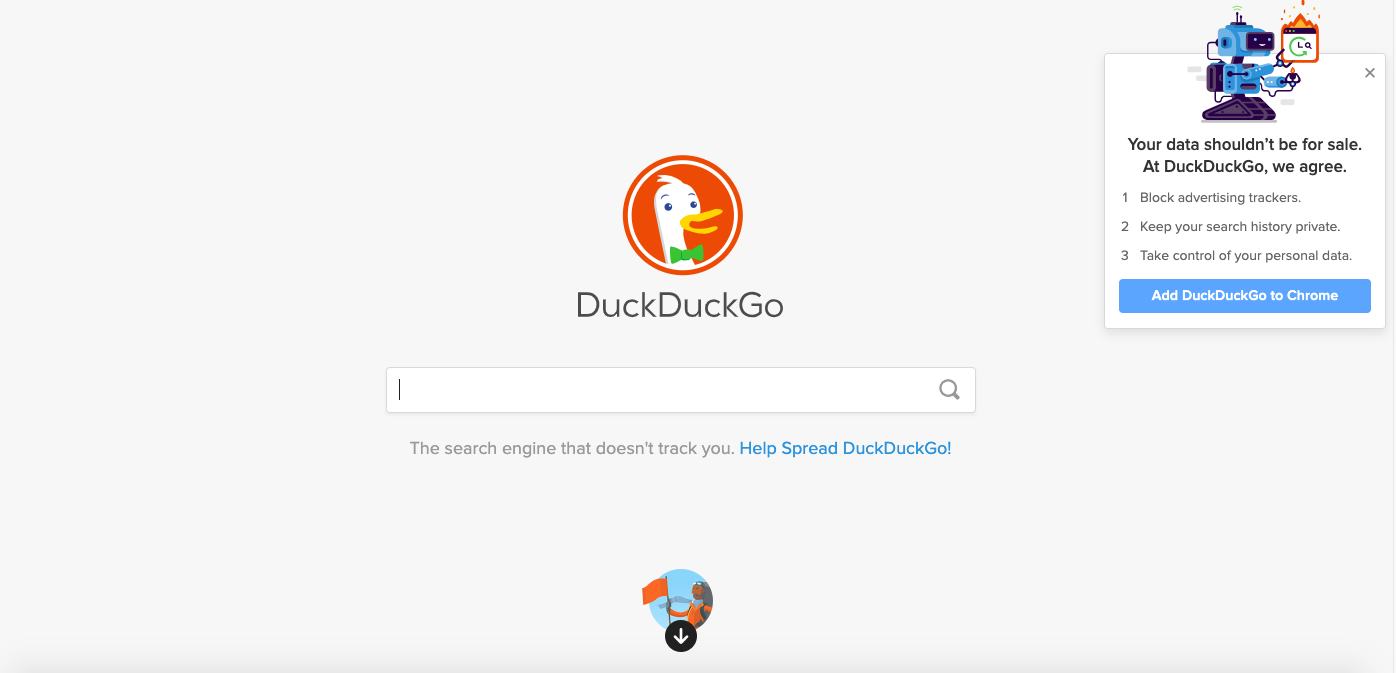
DuckDuckGo could be your new default search engine if you want to focus on privacy and security. What it’s like using it nowadays?
You might have heard of DuckDuckGo in the past. Our first long post about it was back in 2016[1] with Rebecca Sentance trying out the new search engine for a week.
Three years later, many things have changed. More users are losing trust in big tech companies and privacy and security are more important than ever. How does DuckDuckGo fit in this change?
And how is the experience of switching into a new search engine nowadays?
DuckDuckGo in numbers

Over the last few months, DuckDuckGo has seen increased media coverage. Its growing stats among a growing conversation around online privacy make it more relevant than ever.
There are more than 30 million searches happening on DuckDuckGo every day. Its data indicates a constant growth. It’s currently the fourth largest search engine in the U.S. counting more than 1 billion searches every month all over the world.
Google is holding the reins of the market share with 88.5% of it, Bing is following with 6.12%, Yahoo! is third with 4.11% and DuckDuckGo is forthwith 0.99% of the market share.
It clearly has a long way to go to stand out as a serious competitor in the market share. However, it has already paved the way in a new kind of search engine that is serious about security and privacy. In fact, its mission is to set a new standard of trust online.
The search engine that doesn’t track you

One of the first things you notice when visiting DuckDuckGo, except for the search box, is

